Professor Simon Bolton, Chair of Innovation at Edge Hill University (EHU), is an internationally recognised leader with over 25 years of experience in higher education and industry. Known for driving disruptive innovation and nurturing entrepreneurship, Simon delivers measurable economic and social change. Simon excels in bridging the gap between academia and industry through collaborative leadership and cutting-edge innovation techniques. As a serial innovator, he established a framework of internal expertise to successfully implement a five-year plan, positioning EHU as a pivotal institution within the region’s business support ecosystem. Under Simon’s leadership, the university’s SME Productivity & Innovation Centre (PIC) has achieved national and international recognition for its innovation excellence. The PIC combines practical high-growth initiatives with academic research, enhancing student employability and strengthening regional partnerships. These efforts address economic challenges, drive growth, and influence policy and social change. The PIC’s success led to EHU becoming the first university in the North West to receive official endorsement from the UK’s ScaleUp Institute, recognising EHU’s Innovation Sprint Programme as a national premier scale-up support initiative. Through initiatives like the PIC, Simon has empowered his team, fostered career advancement, and secured funding, amplifying EHU’s stakeholder influence and economic impact. He champions sustainable development, generating long-lasting benefits for his team, students, businesses, and regional stakeholders. Over the last five years, Simon’s Work-Related Learning initiative has provided employability opportunities for over 6,000 students, creating a pipeline of highly skilled graduates for the regional economy. Community-focused projects like Leading Lancashire have prioritised professional development for women, ethnic minorities, and disabled individuals, benefiting over 800 local employees.

3rd PLACE
Entrepreneurial Leader of the Year Award
Simon Bolton
3rd PLACE Entrepreneurial Leader of the Year Award
Edge Hill University - SME Productivity & Innovation Centre - United Kingdom
"Bridging the academia and industry gap to drive transformative innovation for positive change."
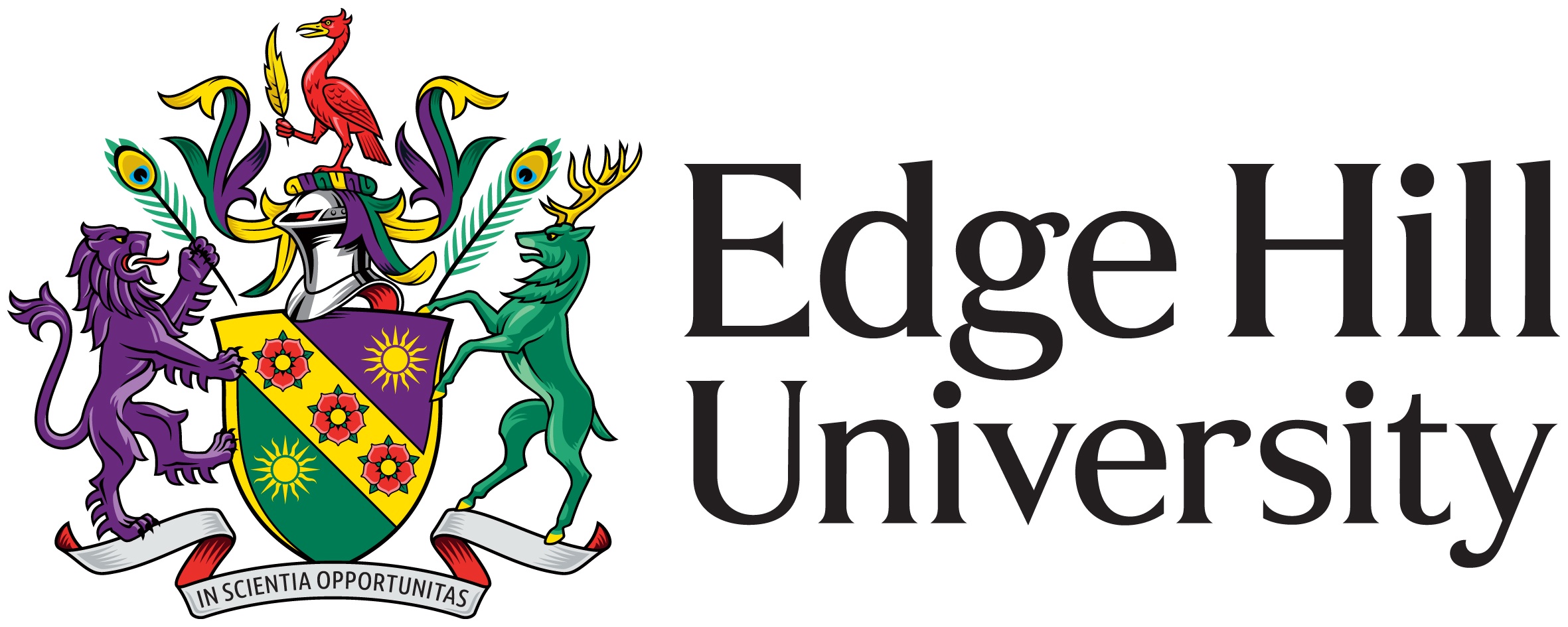
Engage on social media
Summary
Key People

Prof. George Talbot
Pro Vice-Chancellor (Research) and Dean of Faculty
Faculty of Arts & Sciences,
Edge Hill University
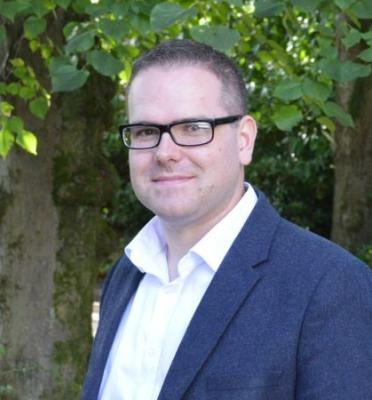
Michael Banford
Associate Director
SME Productivity & Innovation Centre,
Edge Hill University
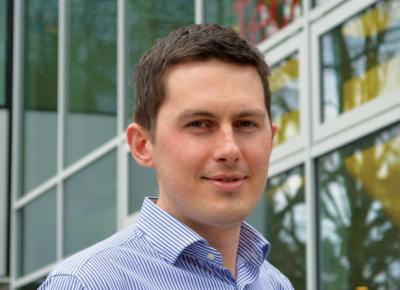
Steve McArdle
Business Development Manager
SME Productivity & Innovation Centre,
Edge Hill University

Steve Stuart
Chair
Professional Business Service Advisory Board LCR

Simon Reid
Assistant Director of Business Growth
Liverpool City Region Combined Authority
Acknowledgements
The SME Productivity & Innovation Centre is part funded by the UK Government through the UK Shared Prosperity Fund.
Acknowledgements to:
• The SME Productivity & Innovation Centre team at Edge Hill University
• UK Government – UK Shared Prosperity Fund
• Liverpool City Region Combined Authority
• West Lancashire County Council
• Preston City Council
• Burnley County Council
• Business Growth Hubs across the region
• University partners
Images
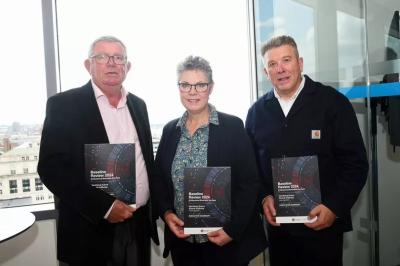
Baseline Review 2024 launch. Steve Stuart, Helen Baden (Department for Business & Trade) Prof. Simon Bolton
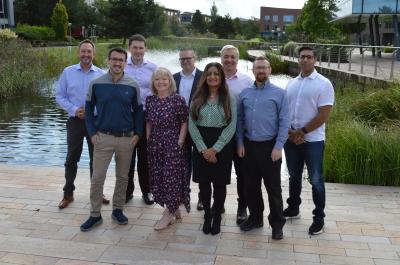
PIC team with SMEs - Connect to Grow Workshop
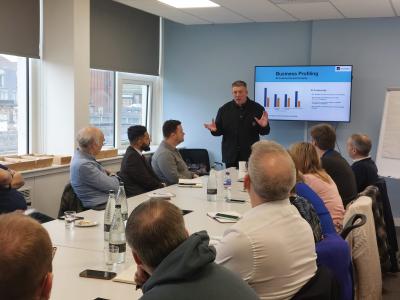
Prof.Simon Bolton delivering Making Sense of AI technologies for the professional services sector
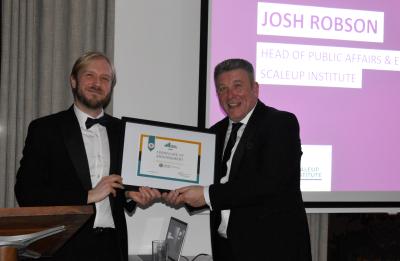
Receiving Official Endorsement from Josh Robson - UK ScaleUp Institute

Home Instead Senior Care (Innovation Sprint Programme) received Outstanding SME as EHU annual business awards
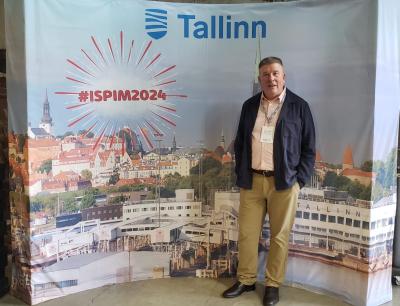
Prof.Simon Bolton ISPIM Innovation Conference, Estonia. Delivering Innovation Management focused workshops to European industry practitioners and researchers
IMPACT STORY
Impacting lifes
Home Instead, a senior personal care franchise offering home care services, specialist dementia care, personal care, and a rapid response service, successfully completed the PIC’s flagship high-growth support program. Following a significant personal financial investment to improve their business, the owners needed to ensure its success. To address critical financial challenges and low productivity levels, Home Instead joined the Innovation Sprint program. Despite a strong focus on quality and winning a top industry award, the family business was in danger of closure.
The team found exploring their MI data and using visual thinking tools intense but soon realized that the practice-led approach would be key to developing a new business model strategy that would secure the business’s future. They completed the program with a clear understanding of their customers’ needs and a financially feasible strategy to scale up the business.
Since completing the program, Home Instead has achieved a 30% increase in revenue, an 18% increase in new clients, adopted new mobile and assistive technology, created four new jobs, and opened an additional office.
“We spent valuable time analysing our business data, goals, and current products and services, facing our critical challenges, exploring opportunities, and benchmarking our sector. We successfully managed to define what our business model should look like. We continue to see our revenues increase in line with our ambitious growth projections,” said Gail Dodson, Director.
LEARNINGS
Lessons learned
Creating a vision and environment that inspires and nurtures innovation has been crucial to the successful implementation of EHU’s 5-year strategic plan.
Simon’s Key Learnings for Leading the Implementation of Complex Strategic Plans are to:
1. Invest in Team Development: Allocate time to develop teams and individuals to empower, motivate, and engage them. Introducing new processes and technology can enhance efficiency in high-growth programmes, improve skills, boost motivation, and provide scalability and longevity, especially with secured additional funding.
2. Skill and Knowledge Building: Equip teams with the necessary skills, knowledge, and confidence. This enables them to rapidly navigate crises, like COVID-19, demonstrating resilience, agility, and the ability to devise flexible solutions.
3. Career Advancement and Professional Development: Use career advancement and professional development to motivate and recognise merit. Nurturing emerging leaders and facilitating progression to roles such as Associate Director or academic Professorship, along with embedding continuous professional development (CPD) opportunities, enhances confidence, performance, and productivity.
4. Effective Communication with Stakeholders: Clearly communicate the measurable impact of initiatives to regional stakeholders. This positions the institution as a vital part of the regional ecosystem, bridging the gap in influencing local government policy and funding decisions.
Simon advises taking a visionary approach that embeds sustainable development, engages students, businesses, regional stakeholders, and the wider community. Ensure your strategy aims to create a prosperous, equitable, and resilient society and celebrate success.
FUTURE PLANS
What's coming?
The University has developed a commercial and investment model to sustain its high-growth support for SMEs. The PIC will continue to champion civic responsibility by identifying opportunities to develop people, places, and communities, thereby supporting national and regional growth.
Simon is leading on implementing a new framework for supporting academic department to establish innovative models for scalable student-led Knowledge Exchange within Business, Law and Computer Science.
Building on the success of the SME Productivity & Innovation Centre, Simon will bridge the gap between academia and industry further, through the creation of an innovative Centre for Artificial Intelligence Leadership and Innovation (CALI). This centre aims to specifically support the Professional Services Sector in improving productivity through the adoption of new technologies.
Simon co-authored a comprehensive baseline review for the Liverpool City Region (LCR), using a unique algorithm, which was used to identify significant opportunities for economic expansion within the LCR Professional Services Sector. Building on these findings, Simon will advance the SME Growth Observatory—an initiative that provides an in-depth assessment of the performance and behaviour of SMEs across various sectors.
The commitment to civic responsibility will persist, supporting national and regional growth through continuous efforts to develop people, places, and communities

